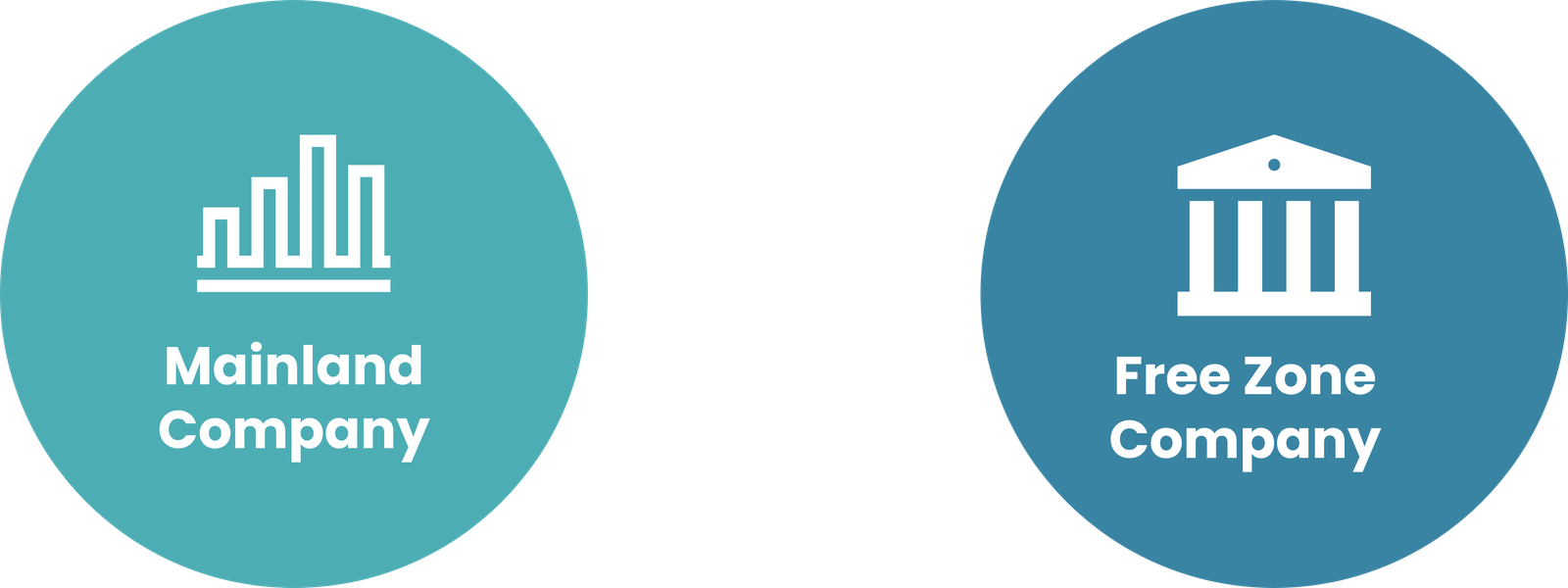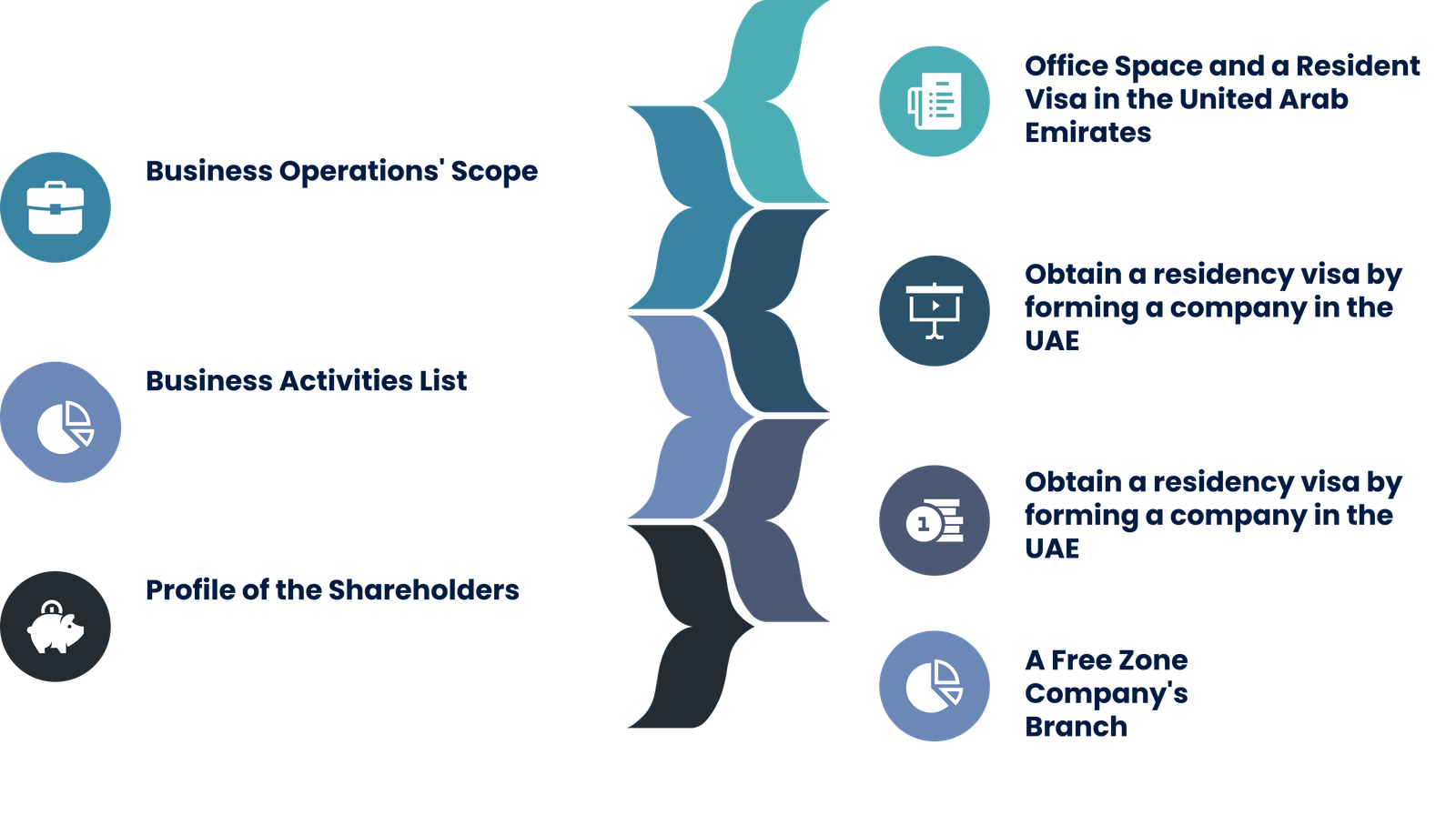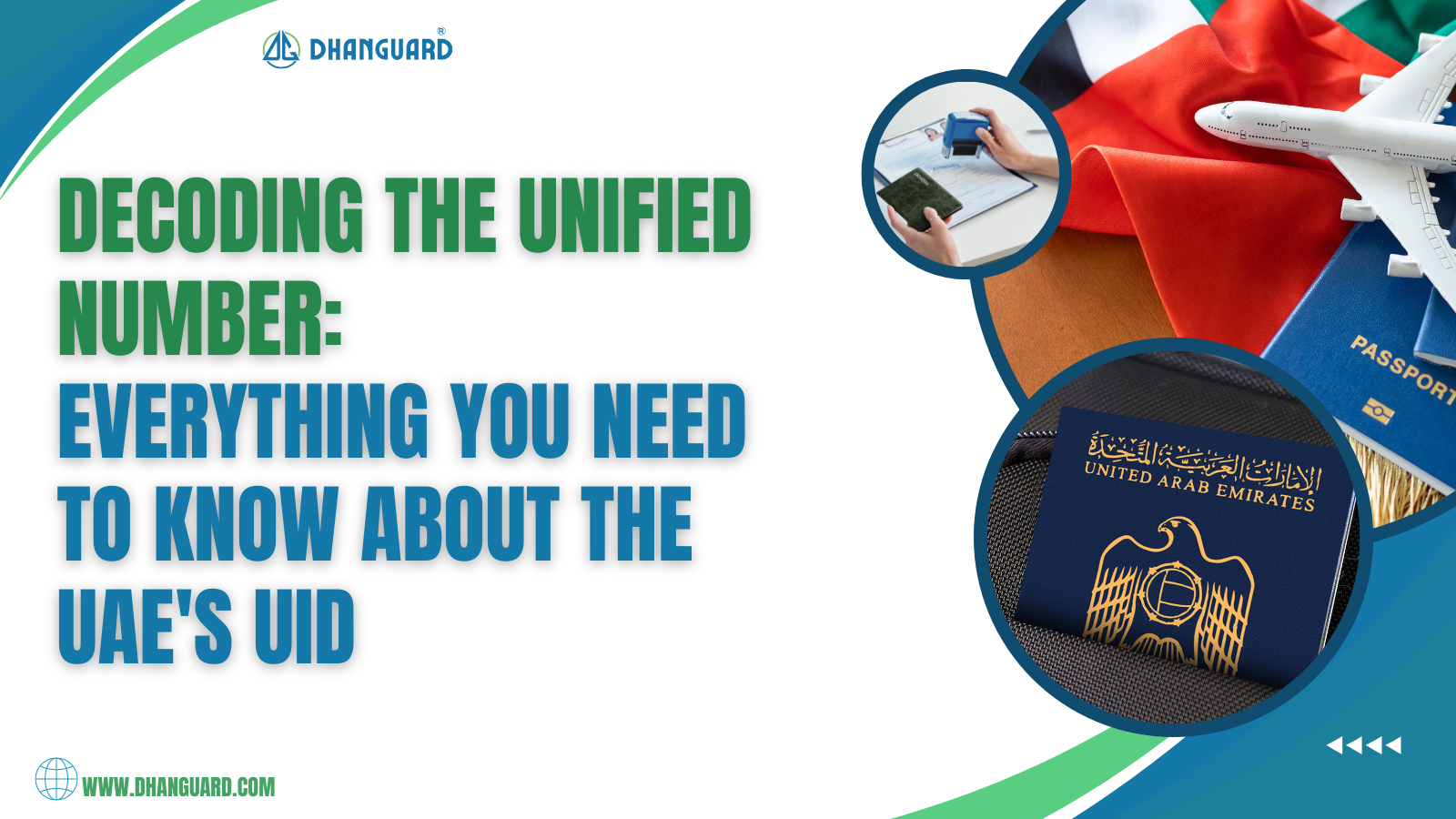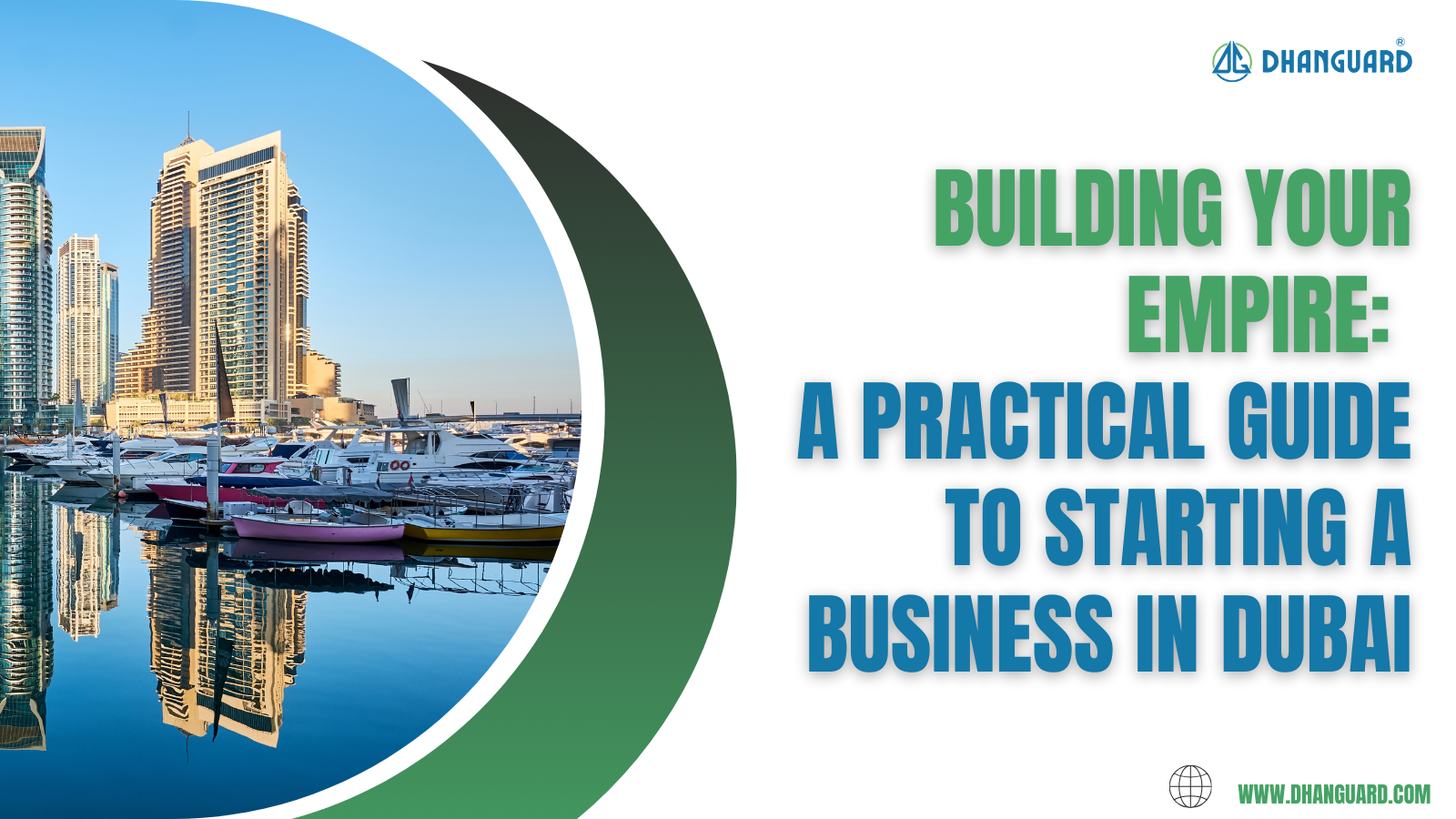"What is the difference between mainland and freezone companies?" is a popular question posed by many potential investors looking to enter the UAE market. From the perspective of an investor, not having a clear and exact grasp of the many business jurisdictions in the UAE is like to boarding a bus without knowing its route or final destination. If you want to invest in the UAE, you must first learn the facts, basic rules, and regulations, as well as the distinctions between the two jurisdictions. Mainland, Free Zone, and Offshore are the business jurisdictions. The investor or entrepreneur should consider these distinctions and choose the jurisdiction that best matches his or her business goals.
Mainland vs. Free Zone Company in the United Arab Emirates
The three jurisdictions, Mainland, Freezone, and Offshore, have distinct characteristics in a number of areas. This article compares and contrasts the primary distinctions between Mainland and Free Zone jurisdictions in terms of ownership and business scope, office space, visa eligibility, company audit, and other factors.

Mainland Company
A mainland company in the United Arab Emirates is an onshore firm that is registered with the government of the Emirate in question. The Emirate's Department of Economic Development is in charge of issuing the trading license. A mainland UAE corporation is primarily distinguished by its ability to trade without restrictions. When a foreign investor invests in a mainland firm in the UAE, the company is allowed to trade both locally and internationally.
Free Zone Company
A freezone company is one that is founded under a special jurisdiction that falls under the jurisdiction of a certain Emirate. There are currently approximately 40 free zones in operation around the UAE. Free zone jurisdictions have their own set of rules and are governed by the Free Zone Authority, a government regulatory authority. The issue of trade licenses is the responsibility of the Free Zone Authority. The benefits of 100% foreign ownership and tax exemptions are hallmarks of a UAE free zone. A free zone corporation can only trade within the free zone and not outside of the UAE.
Pros and Cons of Mainland and Freezone Company
Major Pros and Cons between Mainland and Freezone are listed below: -

Business Operations' Scope
It is preferable for Free Zone enterprises that specialize in a particular industry area to remain in a free zone rather than on the mainland.
An international trading enterprise, for example, would be better off in the Dubai Airport Free Zone or the Hamriyah Free Zone for easier trade facilitation through airports and seaports than on the mainland.
For smooth transportation of goods to and from the UAE, the Free Trade Zones provide quick access to customs and an upgraded logistics network.
Additionally, free zone enterprises can profit from and collaborate with other businesses in the area.
Business Activities List
There are a few business activities that are only available in the Free Trade Zones and not on the mainland.
As a result, before moving the free zone firm license to the mainland, the investor should check to see if a similar economic activity is available there.
For a list of operations, the investor must contact the mainland's new licensing authority, Dubai Economic Development.
The approvals process, the process for acquiring a business license, the method for obtaining a UAE residence visa, and so on differ between the mainland and the free zone.
Profile of the Shareholders
On the mainland, particularly for service enterprises, the shareholder must have professional qualifications in the field of activity, as well as attend an American University training session and pass an exam.
In addition, the stockholders' educational credentials must be stamped by the Ministry of Foreign Affairs before a business license can be issued. There are no such pre-approvals for services licenses to be given in the Free Zone. In a few UAE Free Zones, company incorporation can be done without the presence of the shareholder.
Office Space and a Resident Visa in the United Arab Emirates
Obtaining a business license for the desired business activity is required for registering a company in the UAE, regardless of whether the company is located in a Free Zone or on the mainland.
From Flexi-desks to premium office spaces, Free Zones offers a wide choice of bespoke workplace solutions.
Flexi-desk systems are generally available in office centers on the mainland. The majority of other firms choose to have a physical office address on the mainland as their address.
Obtain a residency visa by forming a company in the UAE
When it comes to UAE residence visas, mainland corporations often give two-year visas, whereas Free Zones typically offer three-year visas.
Employee visa quotas on the mainland are determined by the amount of office space rented out, however in the Free Zone, a reserved visa quota for a company license can be raised by paying a charge.
The standard office space in the Free Zone must be upgraded in the event of an expansion in employee number, which could be costly when compared to the mainland.
Commercial space rentals on the mainland are far more competitive, and more possibilities are becoming available across the UAE.
Flexibility – Business Operations Scope
The Free Zone's business is primarily focused on the services, general trading, and commercial sectors, which export the majority of their products and also sell through distributors in the UAE.
The regulations and policies of the Free Zone govern the company.
If a firm is registered on the mainland, it can open an office anywhere in the UAE and begin doing business there. The company can register with the chamber of commerce and bid on significant contracts through UAE government tenders.
A Free Zone Company's Branch
It is not possible to move a Free Zone firm to the mainland. To increase the presence in the UAE mainland, the Free Zone Company might open a branch with the relevant Department of Economic Development.
Another alternative is to liquidate the Free Zone firm and start a new one on the UAE mainland, continuing to do business in the UAE and GCC markets.
Conclusion
We hope the key differences between a Mainland and a Free Zone Company in the UAE have been addressed. Dhanguard Business Setup Services helps investors and entrepreneurs establish their business goals on the UAE mainland as well as in free zones. If you would like to know more about a mainland and Free zone company in UAE and their detailed business setup cost, feel free to contact our team of business advisors and consultants. We are ready to solve all your queries.
DhanGuard: All-in-One Solution for Business Setup in Dubai, UAE
DhanGuard is your ultimate one-stop solution for all your business needs. Whether you’re planning to set up a new company or expand your existing business in the UAE, we’ve got you covered with our comprehensive range of services. From Business Setup in UAE and Company Formation in Dubai to managing your financial and legal compliance, we provide everything you need under one roof.
Our services include:
- Company Formation in UAE and Dubai
- Opening a Business Bank Account in UAE and Dubai with a 99% success rate
- VAT & Corporate Tax Compliance
- Accounting, Bookkeeping, and Auditing Services
- Trade License Renewal
- Golden Visa Assistance
Let DhanGuard make your journey of Business Setup in Dubai seamless and hassle-free!















